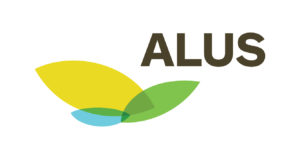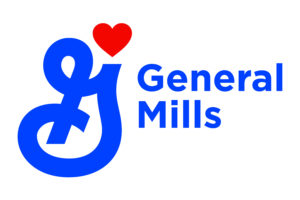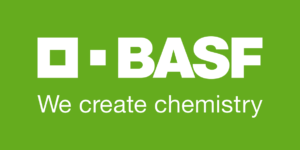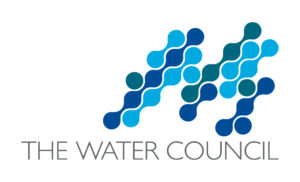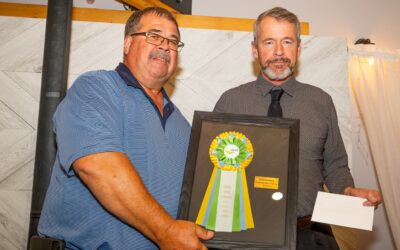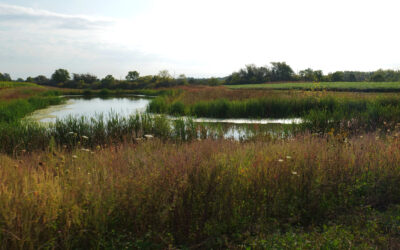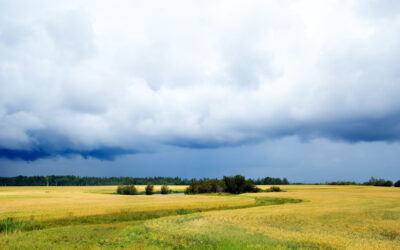Collective action across the supply chain sees partners convene on a water stewardship pilot project to benefit Lake Winnipeg
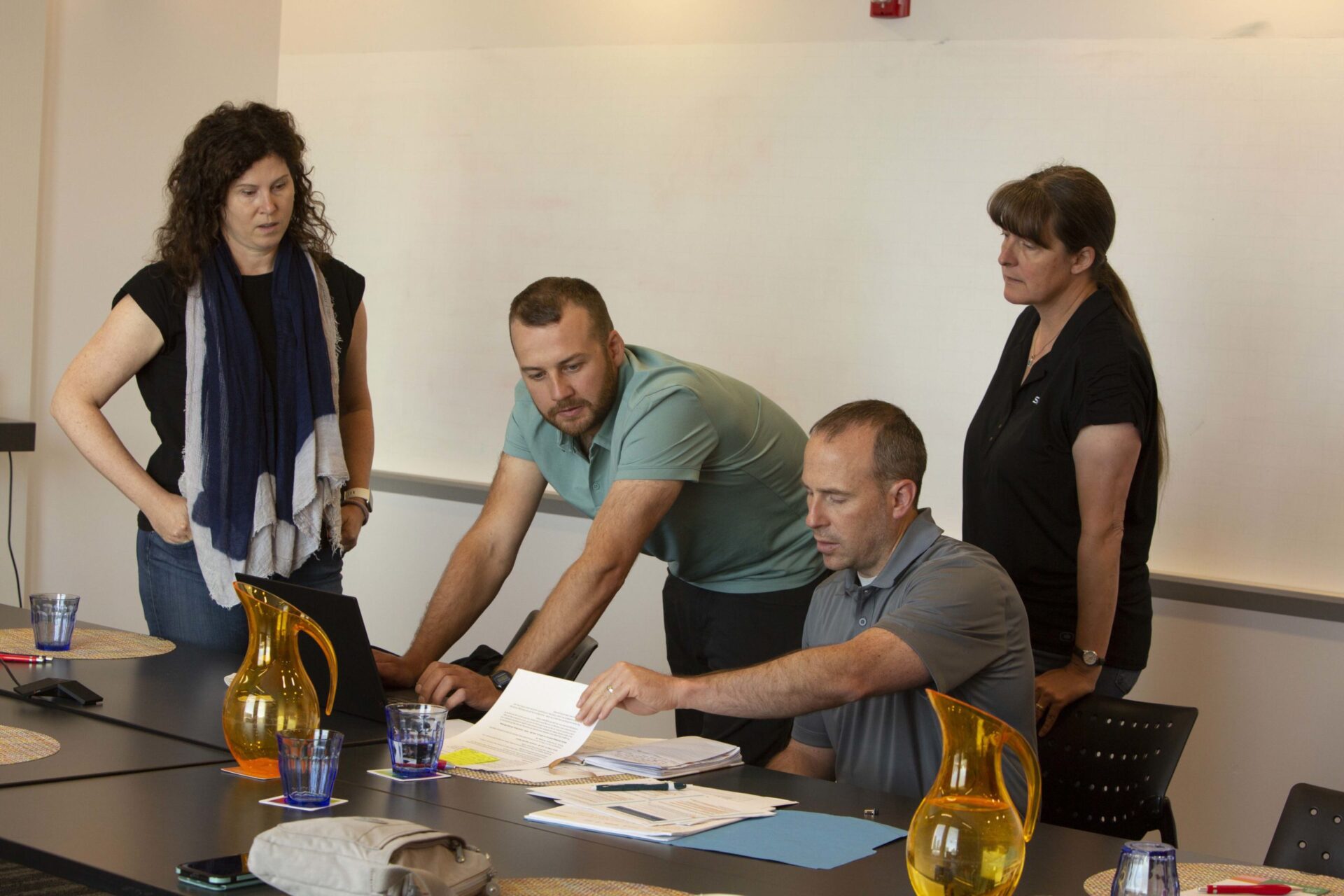
Team members discuss the pilot project during a meeting in Winnipeg, June 29. Left to right: Lara Ellis, then Senior Vice-President, Policy and Partnerships, ALUS; Will Bailey-Elkin, Project Manager, Lake Winnipeg Basin Project, ALUS; Mike Nemeth, Senior Advisor, Agricultural and Environmental Sustainability, Nutrien; and Brandy Wilson, Global Sustainability Director, the J.R. Simplot Company.
In July, ALUS and its partners gathered to define the parameters of the Lake Winnipeg Basin Project, a pilot project focused on testing a standard for water stewardship practices in the Lake Winnipeg basin.
The pilot project is focused on generating and measuring the potential water quantity and quality benefits of various water stewardship interventions on four potato farms within the Lake Winnipeg Basin. All four farms grow other crops in rotation with potatoes, such as grains and oilseeds.
The project partners are dedicated to a collaborative process to create outcomes that are feasible, cost-effective and efficient for stakeholders throughout the Lake Winnipeg basin.
This pilot project is being undertaken in partnership between The Water Council, Nutrien, BASF, General Mills, J.R. Simplot Company and ALUS.
“This is a globally unique project,” said Matt Howard, Vice President Water Stewardship, The Water Council. “This pilot will help producers and partners understand what water stewardship actions will deliver improved water stewardship outcomes at the farm and watershed levels while contributing to long-term outcomes which benefit Lake Winnipeg and the surrounding communities.”
Critical to the Lake Winnipeg Basin Project are the farmers and ranchers engaging in water stewardship projects on their property. As part of their participation in the project, producers will be creating water stewardship plans with support from the partners. These plans will allow the participants to track the impacts of their water stewardship over time and help their operation become more resilient to changes in water availability. Moreover, the feedback from the participants will provide insight to the partners as they seek to expand toolsets for water stewardship to farmers and ranchers throughout their supply chains.
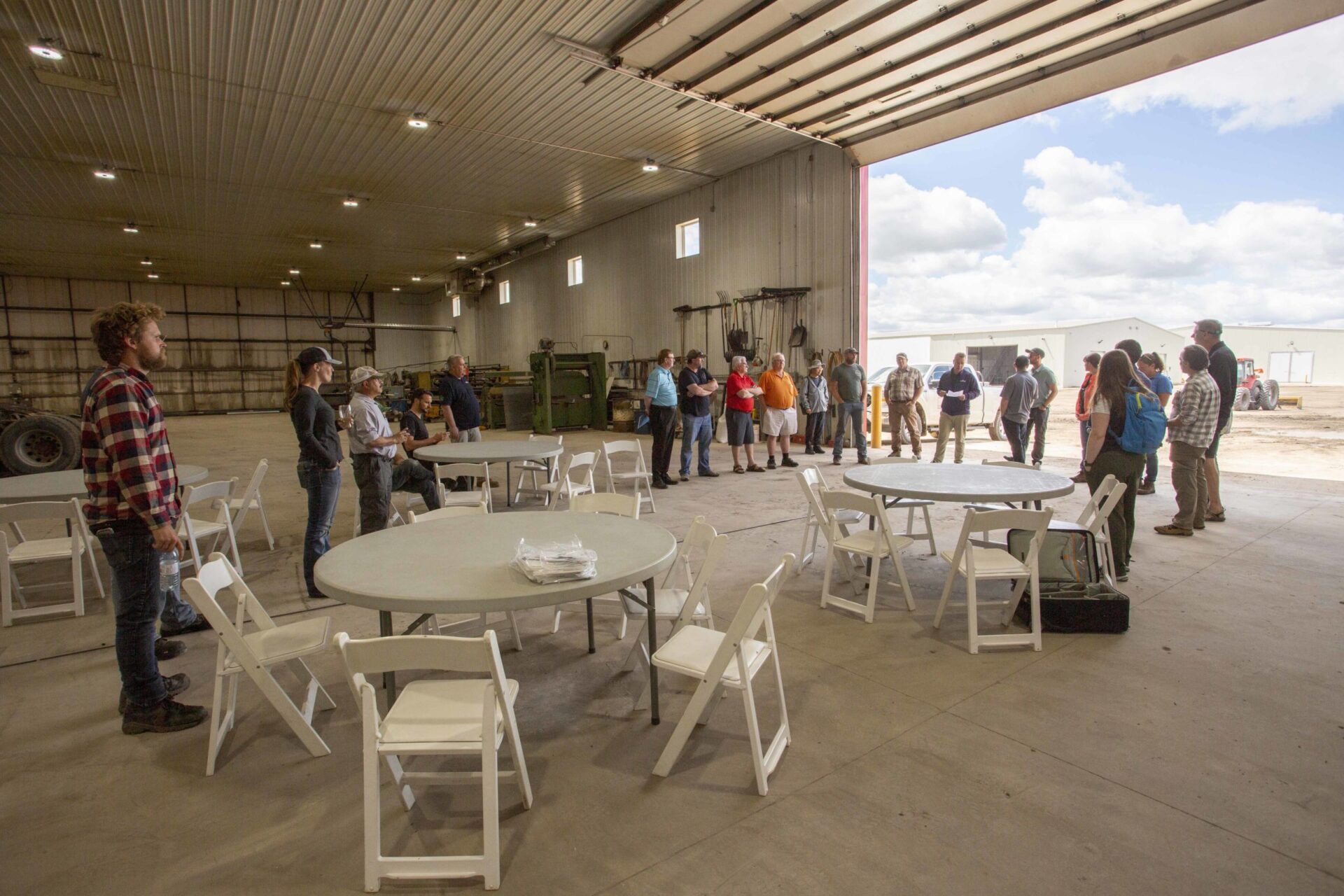
Project stakeholders discuss water resources issues in the Lake Winnipeg Basin.
“The shared learnings among farmers and the understanding they bring to our pilot project are invaluable,” said Mike Nemeth, Senior Advisor, Agricultural and Environmental Sustainability, Nutrien. “Based on their on-the-ground management expertise, participating farmers and ranchers will ensure that any plans, actions, and outcomes generated from the project will be in the best interest of producers and the environment.”
The partners met to evaluate several scientific methodologies and data applications to help evaluate the health of Lake Winnipeg. The Alliance for Water Stewardship (AWS) standard will form the basis for data collection, analysis, planning and action. Metrics used to determine the outcome may include water quality, water quantity, carbon dioxide, crop productivity, biodiversity, soil health and social and economic factors measured from over 34,000 acres of land.
“To achieve sustainable solutions for the Lake Winnipeg watershed, we need to understand the environmental, community and economic outcomes from on-farm water stewardship actions,” said Brandy Wilson, Global Sustainability Director, J.R. Simplot Company. “We’re excited to partner on this project because we’ll be able to develop and implement water stewardship plans in partnership with farmers and others in the food and agriculture value chain to see what we can achieve, collaboratively.”
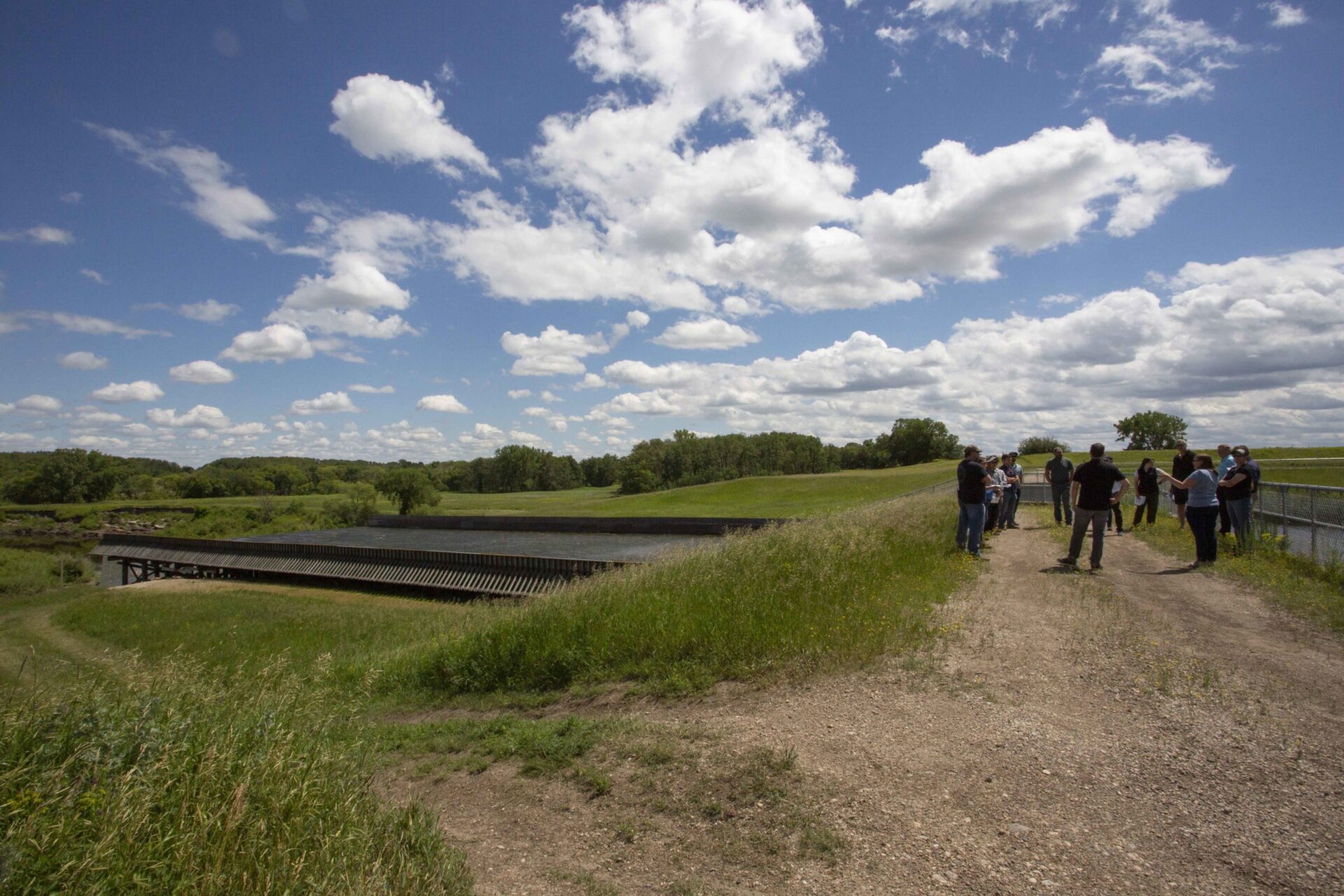
Attendees of the planning and strategy session tour the Stephenfield Reservoir.
The AWS standard will help define the parameters through its systems approach, providing a rigorous framework to plan, implement and evaluate water resource outcomes and the pilot project. In combination, these practices will help chart a healthier future for Lake Winnipeg by properly respecting its ecological and economic value and creating avenues to safeguard and enhance its wellbeing. Additionally, the AWS standard will help ensure that any best practices developed through the pilot will be reproducible and scalable on adjacent farms.
Over the course of the next 6 months, the partners will analyze existing water and land practices in the project area, develop holistic management plans and measure outcomes and co-benefits from action taken on farms in the project area.
“Water-related challenges, such as the 2021 drought in Manitoba, create widespread impacts on communities, farmers and economies. This project will provide urgent, much-needed strategies for stewards on the ground adapt to and manage these changes,” said Dr. Steve Rosenzweig, Agriculture Science Lead, General Mills.
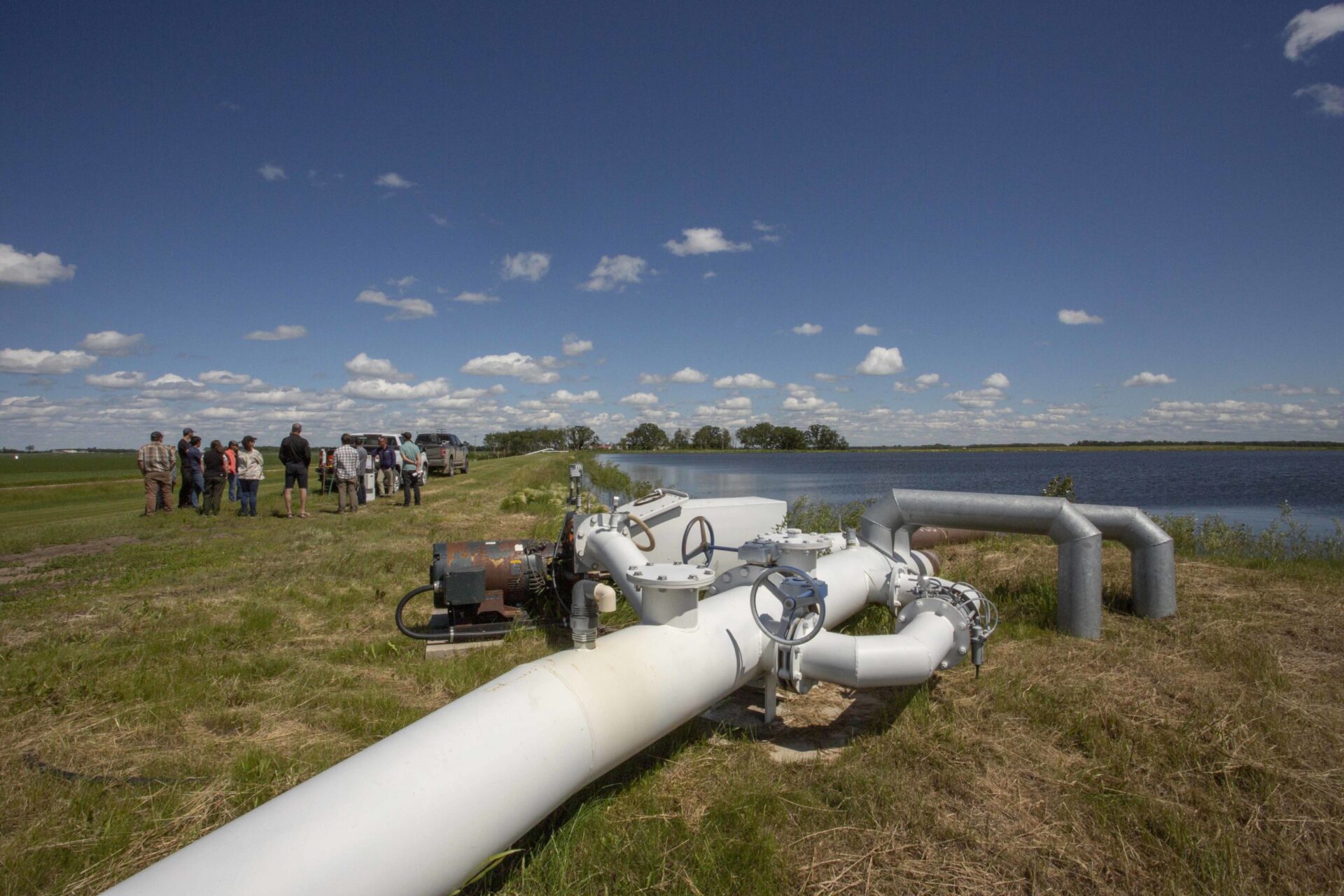
Pumping mechanism at one of Corduroy Plains Reservoirs.
Leading experts and researchers, such as Dr. Wanhong Yang, University of Guelph; Joey Simoes, International Institute for Sustainable Development; Duncan Morrison, Manitoba Forest & Grassland Association; Steven Frey, Aquanty; Ed Pinero, EcoMetrics; and Pascal Badiou, Institute for Wetland and Waterfowl Research, Ducks Unlimited Canada (DUC), gathered with the partners to help shape and inform the methodologies being pursued for the pilot project.
“This pilot will benefit from the broad range of ideas and technologies put forth. Through partnerships and collaborations like this one, we will be able to deliver innovative solutions for water stewardship to farmers faster. Working together with these experts on land use and water management practices is a key part to the success of the pilot project.” said Katja Rochacewich, Stewardship Manager, BASF.

